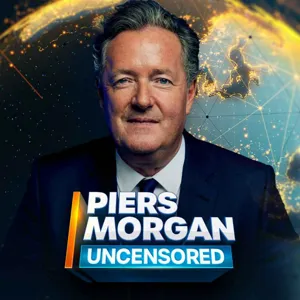Podcast Summary
Obsessing over speech after traumatic events can overshadow productive dialogue and action: The focus on policing speech after traumatic events can create a toxic political environment, deepen divisions, and shape the political landscape for years to come. It's essential to engage in constructive dialogue and find ways to move forward and heal.
The aftermath of traumatic events, such as the massacre in Israel or the 9/11 attacks in the United States, can lead to a toxic political environment where the focus shifts from finding solutions to policing speech. This can result in a permission structure for extreme actions and a deepening division among people. As the speaker experienced during the aftermath of the Israel massacre, the obsession with what can and cannot be said can overshadow the need for productive dialogue and action. The consequences of this can last for years, shaping the political landscape and fueling further conflict. It's crucial to remember that the words we use and the boundaries of speech have the power to influence actions and outcomes. Therefore, it's essential to listen carefully to those in power and engage in constructive dialogue to find ways to move forward and heal.
Political Stances on Israel-Hamas Conflict Overlook Complexities and Civilians' Suffering: Political stances on Israel-Hamas conflict need to consider complexities and prioritize innocent lives for lasting peace
The ongoing conflict between Israel and Hamas has led to intense political rhetoric and starkly different perspectives on the situation. Senator Lindsey Graham and the Biden administration have taken firm stances in support of Israel, labeling Hamas as the sole instigator of violence and condemning calls for a ceasefire. However, this perspective overlooks the complexities of the situation and the suffering of civilians in Gaza. The Biden administration's stance that there are not two sides in this conflict raises questions about who these displaced civilians are fleeing to and who is supporting them. Former President George W. Bush's recent comments echoing the need to support Israel, regardless of the consequences, further underscores the divisive nature of the discourse. The repugnant logic of collective guilt and punishment applies to both sides, and it's crucial to consider the wisdom behind Israel's reprisals, even if they come at a high cost to Palestinian civilians. Ultimately, the situation demands nuanced understanding and diplomatic solutions that prioritize the protection of innocent lives and the pursuit of lasting peace.
The Israeli-Palestinian conflict: Complex causes and geopolitical implications: To achieve peace in the Israeli-Palestinian conflict, both parties must commit to dialogue and compromise, addressing the root causes of Palestinian frustration, and focusing on peaceful resolution rather than violence and retaliation.
The Israeli-Palestinian conflict is a complex issue with deep historical roots and current geopolitical implications. Hamas, as a political and militant group, thrives on Palestinian despair and has used violent tactics to gain support. The international community's response to the conflict can significantly impact its outcome. While Israel's security is a legitimate concern, solely focusing on vengeance and military action may not be the best solution. Instead, addressing the underlying causes of Palestinian frustration and working towards a peaceful resolution is crucial. The politics of 9-11 and the presentation of context can cloud our understanding of the situation, making it essential to consider all sides and their motivations. Ultimately, a sustainable peace process requires both parties to be committed to dialogue and compromise, rather than perpetuating a cycle of violence and retaliation.
The Israeli-Palestinian conflict: Complex and without simple solutions: Blindly trusting Israeli government's security policies could worsen the conflict. Both Israeli and Palestinian daily struggles must be addressed. International community should remain critical and open to second opinions. Avoid being manipulated by terrorists' desires to instigate fear and anger. Work together to find a just and lasting solution.
The Israeli-Palestinian conflict is a complex issue with deep-rooted causes and no simple solutions. The Israeli government's policies aimed at ensuring security and freedom for Israelis have failed in the past and continuing to rely on them could lead to more harm than good. The Palestinians' daily oppression and the Israelis' daily threat are two immovable facts that must be addressed. The international community should not be swayed by emotions or fear, but rather, remain critical and open to second opinions. Trusting Netanyahu's instincts blindly could lead to disastrous consequences, as seen from the events unfolding in the Middle East. The essayist warns against being manipulated by terrorists' desires to instigate fear and anger, and instead, encourages a thoughtful and reflective approach to finding a peaceful resolution. The history of the Israeli-Palestinian conflict teaches us that inflicting more punishment on the Palestinians will not lead to moderation but rather strengthen extremist groups. Ultimately, the international community must work together to find a just and lasting solution that addresses the fundamental threats faced by both Israelis and Palestinians.
The destructive consequences of hardened hearts: Unyielding fury and unwillingness to find peace can lead to devastating consequences, as seen in the Exodus story and the Israeli-Palestinian conflict.
The Exodus story serves as a cautionary tale about the destructive consequences of hardened hearts and the relentless escalation of violence. God's role in hardening Pharaoh's heart highlights the devastating impact of unyielding fury and unwillingness to find a peaceful resolution. This dynamic is reminiscent of the ongoing conflict between Israelis and Palestinians, where violence begets more violence. The speaker expresses despair and a longing for safety and a haven for both Israelis and Palestinians. However, they believe that change can only come when those advocating for peace gain significant power to counterbalance the influence of hardliners on both sides.





